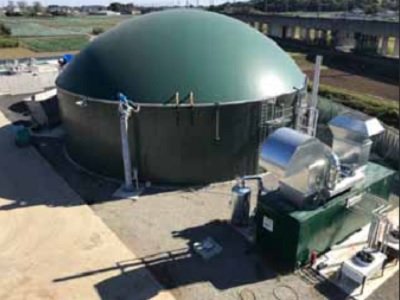Ductor and TotalEnergies form JV to develop biogas and organic fertiliser projects
The two companies have agreed to form a joint venture to co-develop and jointly invest in 15 to 20 anaerobic digestion facilities targeting nitrogen-rich feedstocks
Ductor, a leading circular biotechnology company within biogas and organic fertilisers, and TotalEnergies, the global multi-energy company, announce a new commercial and financial partnership with joint development of production facilities and TotalEnergies equity ownership in Ductor.
The two companies have agreed to form a joint venture to co-develop and jointly invest in 15 to 20 anaerobic digestion facilities targeting nitrogen-rich feedstocks and organic waste from the agricultural sector and turning this into sustainable organic fertilizers and renewable natural gas.
The facilities will utilise Ductor’s unique and proprietary circular biotechnology already in use at Ductor’s operational plants in Germany and Mexico, capable of processing highly untapped waste streams from the poultry and aquaculture industries, that will help solve today’s environmental challenges in the agri-food sector. The priority geographies for delivering these joint venture projects are the US and Europe.
“Ductor has identified a significant opportunity pipeline for future biogas and sustainable organic fertiliser plants ready for development and commercialisation, and the partnership with TotalEnergies will allow us to move forward with executing that pipeline and towards the construction of the first integrated fertiliser and biogas project,” said Bernard C. Fenner CEO of Ductor .
In the joint venture, Ductor will be responsible for screening opportunities, securing land, feedstock, engineering, obtaining permits, and conducting feasibility studies. TotalEnergies will actively participate in the development, construction, and operational phase, as well as being the off-taker of all produced renewable natural gas and its associated environmental attributes. Ductor will off-take and market the speciality fertilisers such as liquid nitrogen fertilisers produced at the facilities. The product has been registered for use in organic farming by the CDFA – California Department of Food and Agriculture in October 2021.
“We are pleased to partner with Ductor, a young company with an innovative pre-treatment technology that will enable us to develop new biomethane production projects, using organic waste that is currently not, or only slightly, reused. By accelerating the biogas chain, this technology contributes directly to the energy transition and to TotalEnergies’ ambition of producing 20 TWh of biogas worldwide by 2030,” said Olivier Guerrini, Vice President, of Biogas at TotalEnergies.
The two companies have agreed to form



